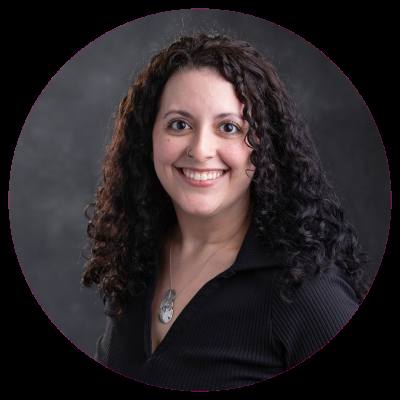The Greater Fort Bend Economic Development Council, a public-private partnership, has been in limbo since December, when the organization announced it could dissolve in June.
This came after a strategic planning firm, as part of a long-range plan, gave the FBEDC’s board of directors two options of how to move forward—both of which involved reorganizing the board and laying off its staff members, officials said.
However, multiple board members told Community Impact they disagreed with the firm’s recommendations and instead delayed the vote to explore their options.
“It was a unanimous vote,” said Sugar Land Mayor Joe Zimmerman, who is also one of the city’s representatives on the FBEDC board. “We felt that the organization needed to remain independent and not under the control of the county, which was what was on the table.”
Despite Fulshear having its own economic development department, organizations such as the FBEDC serve as an “invaluable” tool for the city’s efforts, Mayor Aaron Groff said.
“Economic development doesn’t happen in a vacuum,” said Groff, who is also the city’s representative on the FBEDC board.
The backstory
In a nutshell
The FBEDC was founded in 1986 and has focused on promoting economic development agreements between potential employers and developers as well as cities and the county, officials said.
Katy City Administrator Byron Hebert said the FBEDC was “instrumental” in facilitating an economic development agreement with the Katy Mills mall’s developer in the 1990s.
“How the deal was put together was a little before my time, but ... they had a lot to do with being able to get the Mills Corp. to come into the city,” he said.
The organization is run by President and CEO Jeff Wiley and its staff members, but it’s governed by its board of directors, composed of representatives from local cities and private businesses, which pay to be members, said Andy Meyers, Fort Bend County Precinct 3 commissioner and FBEDC board member.
To make recommendations on how to move forward, in mid-March the county and the FBEDC’s eight-member executive committee of business leaders formed an ad hoc committee made of 14 members. An FBEDC representative declined Community Impact’s interview request.Carlos Guzman, director of the county’s internal Economic Opportunity and Development department, said the ad hoc committee will help determine the path for both the county’s department and FBEDC. The county's department launched in 2022.
“We’re at a standstill, because once we know, ‘Hey the ad hoc decided you need to turn left instead of right,’ then at that point, that’ll be the structure the county ... is going to follow,” Guzman said.
The ad hoc committee is composed of local employers, representatives from chambers of commerce, education leaders and representatives from local economic development organizations, Guzman said.
The committee will make recommendations on:
- How the county’s new department can work with cities and local economic development departments
- How to move the FBEDC’s board forward under strategic planning firm TIP Strategies’ recommendations, but the FBEDC board of directors will decide if they want the organization to continue
Hebert said the city of Katy benefits from memberships with the FBEDC, Katy Area Economic Development Council, Waller County Economic Development Partnership, and state and regional economic development entities. He said the city is open to partnering with the county’s new department as well.
“However it’s going to work, the city of Katy will work with whatever entity comes out [of the ad hoc committee],” Hebert said.
Groff said it was unclear in what ways cities' voices could be represented within the county's department.
"Collectively, as municipalities, we had a voice on the Fort Bend EDC, because we were members," Groff said. "I don’t know what that’s going to look like from the Fort Bend County collective aspect."
Meanwhile, Missouri City City Council voted March 4 to withdraw immediately from the FBEDC and seek $42,500 in reimbursements. Herman Rodriguez, executive director of economic development at Missouri City, said this is how much the city paid to the FBEDC in the fiscal year ending in June for memberships and marketing.
While the FBEDC focuses mostly on attracting industrial businesses, Rodriguez said city staff looks to attract other types of businesses, such as restaurants and retail.
“Industrialization in urban areas doesn’t lend itself to quality of life and is not our focus," he said. "We are focused on quality of life and corporate businesses looking for great places to eat, shop and play."
Why it matters
Meyers said some members of Commissioners Court want economic development to fall mainly under the county’s purview, which he doesn’t agree with.
“We need an independent economic development council. I disagree that the county can take over economic development and basically do it justice,” he said.
Regardless of the organization’s future, Meyers said he believes economic development is important because the county should diversify its property tax base to ease the burden on taxpayers, because most of the county’s revenue is from residential development.
Katy Mayor William “Dusty” Thiele spoke similarly, saying property taxes from economic development help fund police, firefighter and other city services.
“It’s important to have smart economic development to bring in to broaden that tax base so that we can maintain the services that our citizens in Katy are used to and want,” he said.
What’s next
City and county leaders said they believe there’s a future for the FBEDC—despite differing opinions on how to get there or what the role will be.
Meyers said the FBEDC should focus more on attracting employers than master-planned communities.
Additionally, Elizabeth Huff—who is Sugar Land’s economic development director, an FBEDC board member and an ad hoc committee member—said she also believes there’s a future for the FBEDC. She said she and other economic development directors would like the FBEDC to:
- Become a lead generator that promotes the county through marketing
- Bring together the region to speak as one voice





